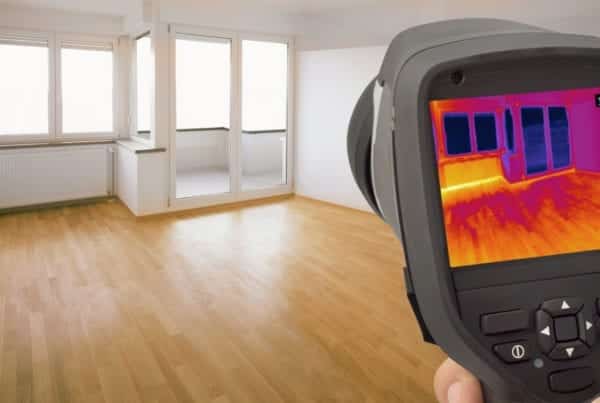
Buying a home can be a long and arduous process. But, adding in a home inspection can help ease your mind a little more, depending on the results. In 2019, homes sold reached 5.34 million and the number is expected to be higher in 2020.
Along with that, more than 90% of home buyers order a home inspection! They do this for a property they are “under contract” and considering purchasing. Even though the seller wants to sell the home, who pays for home inspection? Well, it is the buyer …most of the time. Let’s take a look.
What is a Home Inspection
A home inspection is an examination of the condition of a property in areas such as structure and safety. A certified and experienced home inspector who has met the qualifications of the state in which he/she lives in follows the practices set forth by the American Society of Home Inspectors (ASHI).

The Areas Covered in a Home Inspection
ASHI has a list of the areas that a reputable home inspector covers and they are:
- Structural
- Electrical
- Exterior
- Roof
- Plumbing
- HVAC
- Interior
- Insulation and ventilation
- Fireplace (where applicable)
This list focuses on the buyer because no one wants to buy a home that is unsafe.
In the home buying process, there are expenses that come up and this expense costs between $250-$700. However, the average is about $300-$350 depending on the size of the home and the location.
Why Get a Home Inspection
As we know, a home inspections is not required but is highly suggested. This home is a large investment and you want to make sure it is safe and habitable for many years to come. A buyer can look at a property and maybe notice a few things that don’t look right.
However, a certified and experienced home inspector can dig in deeper, knows what to look for, and finds out if the areas mentioned above are functioning well.
You don’t want any surprises when you try to get insurance on the home. Nor do you want issues when you move in and discover a big problem. A home inspection is definitely money well spent and will give you a peace of mind.
Who Pays for Home Inspection
More often, the buyer pays for the home inspection and does this when making the appointment or on the day of the inspection. This depends on the preference of the company.
The reason the buyer pays for the home inspection is he/she is making sure the property is safe for the people who will be living in the home. Also the buyer wants to know that it is a good investment.
The buyer also chooses the inspector for the home and this will be someone who is an “outside” party who will give an objective and unbiased evaluation of the home.
If the seller paid for the inspection, the buyer wouldn’t know if it was a fair evaluation. This is because many home sellers wouldn’t want a list of repairs to appear on an inspection report.
When might the seller pay
The seller might have a pre-inspection done on the home. This would be so he/she could start on any repairs early before a contract is signed. Additionally, this also gives the seller knowledge of repairs needed and he/she can disclose these in the information about the home.
A seller might also pay for the home inspection as part of the negotiated contract. If you agree to it and the inspection turns out well, then you both win. Sometimes the seller might include the home inspection as part of the closing costs if there is a hurry to sell and to have a potential buyer.
When Do You Schedule the Home Inspection
Scheduling the home inspection right after a contract is on the home is the perfect time. However, you should be doing your research before this to find a certified and experienced home inspector.
The thought of trying to hire a cheap home inspector might have crossed your mind, but it is not a good idea. Cheap often means less experienced and not as thorough.
Also, as with appointments with any company, sometimes it takes a while to schedule. Researching for a good home inspector means looking on the ASHI and InterNachi sites for inspectors in your area, as well as Google reviews and recommendations from others.

What Might the Seller Need to Replace
Not everything that shows up on the inspection report to be fixed is a necessity or something that needs to be fixed or replaced right away. However, anything that deals with safety such as structural defects, rotting wood, problems with plumbing, electrical, or mechanical issues will need to be fixed by the seller.
Although, there is no set rule that says a seller must pay for any repairs. It is smart of the seller to fix repairs that are safety issues though as they will continue to show on the inspection reports.
Sometimes the seller will subtract the amount of repairs from the asking price of the house to pay for those issues. Other times, the seller will pay for it or may even say he/she is not going to pay for it. When the issues come back in the inspection report, the buyer can then decide whether they are serious enough to walk away.
If a home is sold “As-is” , the buyer can pay for a home inspection, but there is no negotiating in the price. Any repairs that show up on the inspection report will not be fixed. The inspection report at that point is for the buyer to know what the home looks like in the “inside” instead of what the naked eye can see.

Specialty (or Add-On) Inspections- What Are They
As stated above, the home inspection covers the area of Structural, Electrical, Exterior, Roof, Plumbing, HVAC, Interior, Insulation, Ventilation and Fireplace (where applicable).
If the home inspector finds additional issues outside of the areas listed above, those are specialty or add-on inspections. The buyer pays for these and some of these are:
- Mold – if the report shows there is a mold issue, you will need to hire a professional to come out and survey the area.
- Radon – if the inspector suspects radon in the home or the insurance company requires it, you will need to have this type of inspection done.
- Wood destroying organisms – If these are present in the home, it will be added to the report. A pest specialist will need to be called in.
- Foundation issues- the inspector may refer you to a structural engineer for this issue
- 4-point inspection- if the home is 25 years old or older, many insurance companies will ask for a 4-point inspection. Some companies require it on a home that is 10 years old or older. The areas inspected are the roof, HVAC, electrical, and plumbing.
- Wind Mitigation- this is required in certain states in order to limit the damage that intense wind can cause on a home. A wind mitigation inspection can also result in savings in homeowners’ insurance.

Negotiations Can Be Reopened
Just because you are “under contract” does not mean that there are no more negotiations. The home inspection is leverage for the buyer to negotiate closing costs or the purchase price of the home, depending on what the inspector finds.
If major repairs come up in the report, you will need to talk to your realtor to find out what to do next and how to approach negotiating or walking away.
The worst that the seller can say is no, but you don’t know until you have asked. Also, if the repairs are too much, you need to consider if it makes sense to make the repair or find another home.
Conclusion
Buying a home is a tricky process! Paying for the home inspection is the start of many expenses moving toward homeownership. No home is perfect and every house will have an inspector who recommends a repair or a replacement.
You have to decide if you are okay with the issues or if you need to walk away. There is a home out there for everyone! Have you had a home inspection and glad you paid for it? Or did the results of a home inspection make you “walk away” from a home? We would love to hear from you!



